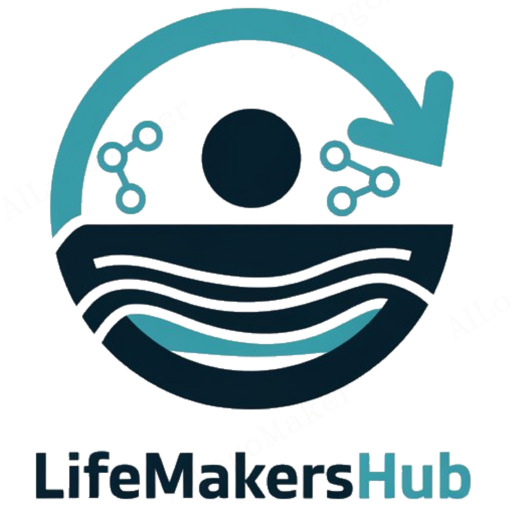Achieve Career Success Through Professional Growth
In today’s fast-paced business world, taking charge of your career is more important than ever. 86% of employees would change jobs for more opportunities in professional development, highlighting the value of continuous learning1. Whether you’re aiming for a leadership role or seeking to enhance your skill set, setting clear goals and taking initiative can make all the difference.
Professional growth isn’t just about formal education—it’s about embracing every opportunity to learn. From networking to seeking feedback, small steps can lead to significant progress. 41% of employees consider career advancement opportunities crucial to their job satisfaction, showing how development impacts both personal and organizational success1.
This article provides actionable strategies to help you navigate your career path. You’ll learn how to leverage resources, build a strong network, and create a roadmap for success. Let’s explore how you can take control of your career and achieve your goals.
Key Takeaways
- 86% of employees value opportunities for development highly1.
- Setting clear goals is essential for career advancement.
- Networking and feedback are key to continuous improvement.
- Proactive learning enhances both personal and organizational success.
- Investing in skills and leadership can open new opportunities.
Foundations of Career Development and Growth
A strong career foundation is built on clarity, strategy, and continuous learning. Understanding the difference between professional growth and development is the first step toward achieving your goals. While development refers to the process of acquiring new skills and knowledge, growth is the outcome—the progress you make in your career2.
Understanding Professional Growth Versus Development
Professional development is the journey. It includes activities like taking courses, attending workshops, or earning certifications. For example, 44% of the skills needed for jobs today will change by 2025, making ongoing education essential2.
On the other hand, professional growth is the destination. It’s the result of your efforts, such as landing a leadership role or mastering a new skill. Both are interconnected, but focusing on the process ensures you reach your desired outcomes.
| Aspect | Professional Development | Professional Growth |
|---|---|---|
| Definition | The process of learning and skill-building | The outcome of your efforts and progress |
| Examples | Certifications, workshops, mentorship | Promotions, leadership roles, expertise |
| Focus | Continuous improvement | Achieving milestones |
Setting Clear Professional and Personal Goals
Clear goals are the backbone of career advancement. They give you direction and help measure your progress. Whether it’s earning a certification or improving communication skills, setting specific objectives keeps you focused.
Communicating these goals to your manager or team can unlock support like tuition reimbursement or mentorship opportunities. 41% of employees consider career advancement opportunities crucial to their job satisfaction, highlighting the value of aligning your goals with organizational resources1.
Here’s how to set effective goals:
- Be specific: Define what you want to achieve.
- Make them measurable: Track your progress.
- Set deadlines: Create a timeline for completion.
By understanding these concepts, you can design a roadmap that leads to both personal and career milestones. This foundation prepares you for deeper strategic insights in the sections ahead.
Actionable Steps for Professional Growth

Taking control of your career requires more than just hard work—it demands strategic action. Whether you’re aiming for a leadership role or expanding your skill set, these steps will help you move forward with confidence.
Taking Initiative and Stepping Outside Your Comfort Zone
One of the most effective ways to advance is by taking initiative. Volunteer for new responsibilities or propose process improvements in your organization. Proactive individuals are more likely to be better performers and innovators, according to Harvard Business Review1.
Stepping outside your comfort zone is equally important. It allows you to acquire new experiences and skills that can set you apart. For example, taking on a challenging project or learning a new tool can open doors to unexpected opportunities.
Building Your Skillset Through Continuous Learning
Continuous learning is essential to stay competitive. Online courses, like those offered by HBS Online, provide flexibility for working professionals and can be completed in just a few weeks1. Certifications such as Project Management Professional (PMP) or Certified Business Analyst Professional (CBAP) can also enhance your value in the business world3.
Regular self-assessment helps identify areas for improvement. By focusing on both mental and intellectual aspects, you can ensure a well-rounded approach to your development3.
Creating a Roadmap for Career Success
A clear roadmap is your guide to achieving long-term goals. Start by setting specific, measurable objectives. For instance, aim to complete a certification within six months or improve a key skill by the end of the year.
Review your progress regularly and adjust your plan as needed. 44% of the skills needed for jobs today will change by 2025, making adaptability a crucial part of your strategy2.
By following these steps, you can build confidence, gain visibility within your organization, and achieve measurable progress in your career.
Strategies for Building a Strong Professional Network
Your network can be the key to unlocking new opportunities and achieving your goals. A robust professional network opens doors to mentorship, collaboration, and career advancement. Whether you’re attending industry events or connecting online, the right relationships can make a significant impact.
Connecting with Industry Leaders and Mentors
Building relationships with industry leaders and mentors can provide valuable guidance. Attend association meetings, conferences, and networking events to meet influential individuals. Engaging with mentors who have diverse experiences can offer insights that accelerate your career.
Mentorship is a two-way street. Be proactive in seeking advice and demonstrating your commitment to learning. Only 40% of bosses are deemed worthy of emulation by employees seeking growth opportunities, so choose mentors who align with your values and goals3.
Utilizing Networking Events and Power Mapping Techniques
Networking events are a great way to expand your connections. Focus on building genuine relationships rather than just exchanging business cards. Power mapping is a strategic technique to identify key influencers within your organization or industry.
Here’s how power mapping works:
| Step | Action |
|---|---|
| 1 | Identify central individuals who hold influence. |
| 2 | Map their relationships and decision-making power. |
| 3 | Engage with them through meaningful interactions. |
By leveraging power mapping, you can focus your efforts on building relationships with those who can support your career development2.
Networking is an ongoing process. Combine online platforms like LinkedIn with offline events to create a well-rounded approach. 86% of employees would change jobs for more opportunities in professional development, highlighting the value of a strong network1.
Integrating Continuous Learning and Constructive Feedback

Continuous learning and feedback are the cornerstones of career advancement in today’s dynamic work environment. By embracing these practices, you can stay competitive, adapt to changes, and achieve your development goals.
Leveraging Online Courses and Certifications
Online courses and certifications are powerful tools for skill-building. Platforms like HBS Online offer flexible learning options that fit into busy schedules. These resources allow you to gain new expertise and stay updated with industry trends4.
Here’s how to make the most of online learning:
- Choose courses aligned with your career goals.
- Set a schedule to complete courses without disrupting work priorities.
- Apply new skills immediately to reinforce learning.
Certifications like Project Management Professional (PMP) or Certified Business Analyst Professional (CBAP) can enhance your value in the business world5.
Seeking and Processing Feedback for Improvement
Constructive feedback is essential for growth. It helps you identify strengths and areas for improvement. Teams that embrace a feedback-rich culture are more adaptable to change and can react quickly based on received feedback5.
Here’s how to seek and process feedback effectively:
- Ask for specific feedback from managers and peers.
- Use the SBI method (Situation, Behavior, Impact) to deliver clear and actionable feedback4.
- Reflect on feedback and create a plan for improvement.
Regular feedback enhances communication and mutual respect within teams, leading to higher engagement and morale5.
By integrating continuous learning and feedback into your routine, you can achieve measurable progress in your career. These practices not only enhance your skills but also contribute to organizational success6.
Conclusion
Achieving career success is a journey that requires clear goals and consistent effort. Understanding the difference between development and its outcomes is the first step. Setting actionable steps, like seeking feedback and building a strong network, ensures measurable progress2.
86% of employees value opportunities for development, highlighting its importance in today’s business world1. By taking initiative and embracing continuous learning, you can shape your career path effectively.
View development as a rewarding, ongoing process. Every step you take brings you closer to your goals. Explore resources and courses to keep moving forward. Your journey to success starts with the commitment to grow and adapt.
FAQ
What’s the difference between career development and personal growth?
How do I set clear goals for my career?
Why is stepping outside my comfort zone important?
How can I continuously improve my skillset?
What’s the best way to build a strong professional network?
How do I seek and process feedback effectively?
What role does a career roadmap play in success?
Source Links
- 7 Ways You Can Achieve Your Professional Development Goals
- Invest In Yourself: Five Keys To Professional Growth And Success
- The Importance of Professional Growth
- How to Give Constructive Feedback in the Workplace
- Practice, Feedback, & Growth Fuels Professional Development
- Constructive Feedback: The Catalyst for Growth and Success







